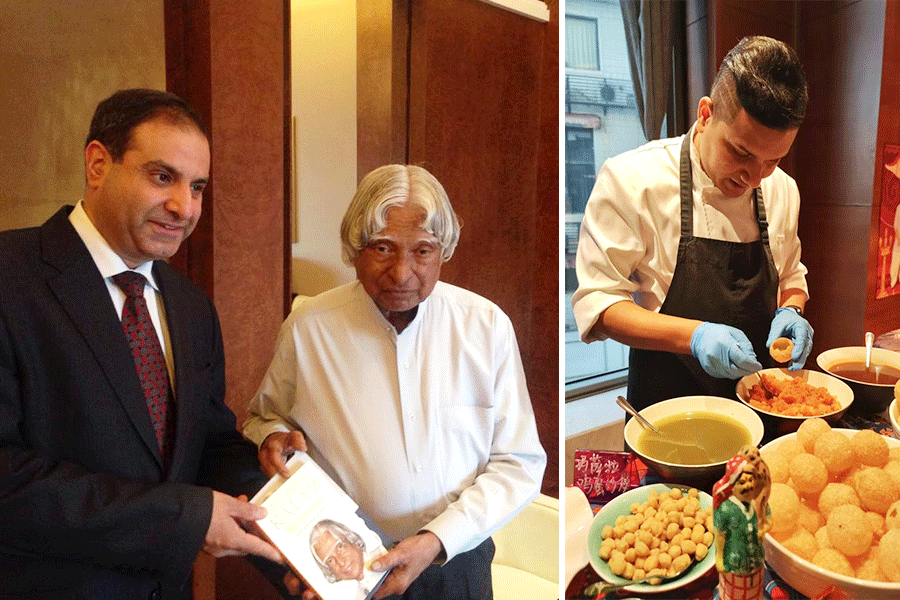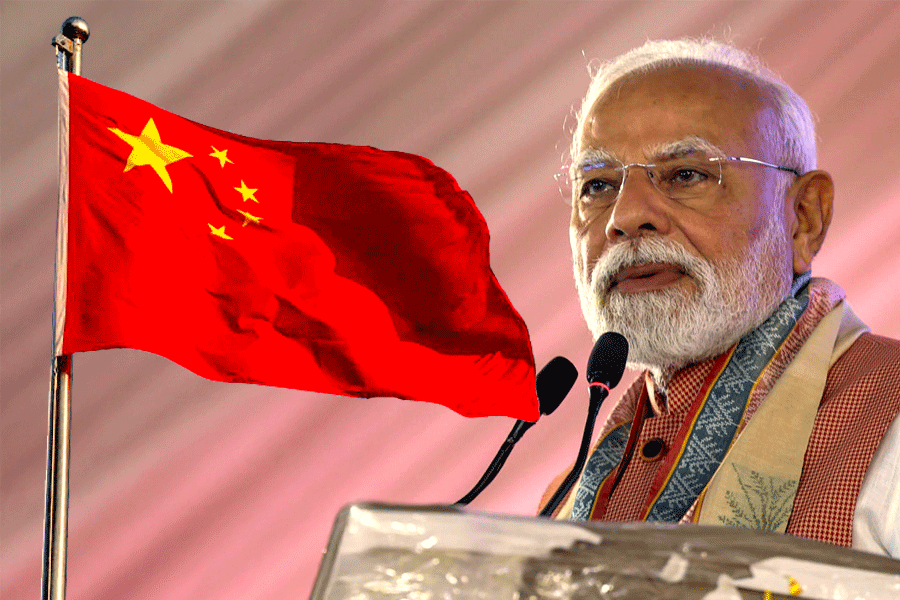Beijing is a bustling metropolis with a population of around 22.5 million. Of those, less than a thousand are Indian. Two of them are Rabiul Baksh and Mehernosh Pastakia, who stand out in this crowd because of their culinary adventures. They both own restaurants Beijingers swear by, as do people at the Indian embassy in the city.
Prime Minister Narendra Modi will visit another part of China for the Shanghai Cooperation Organisation Summit in Tianjin, possibly with the motive of improving relations between the two countries, but away from the spotlight, Rabiul and Pastakia have been building bridges between the two sets of cultures for a while now.
Whether he gets the opportunity to cook for Modi this time or not, the current Indian prime minister has already made it to Pastakia’s list. He has had the unique honour of catering food to three Indian prime ministers, Atal Bihari Vajpayee, Dr Manmohan Singh and Modi, as well as former President APJ Abdul Kalam. Not a future that any amount of suan ming (Chinese for fate calculation or fortune telling) could have predicted when 24-year-old Pastakia arrived in Jiang Zemin’s China in 1991.
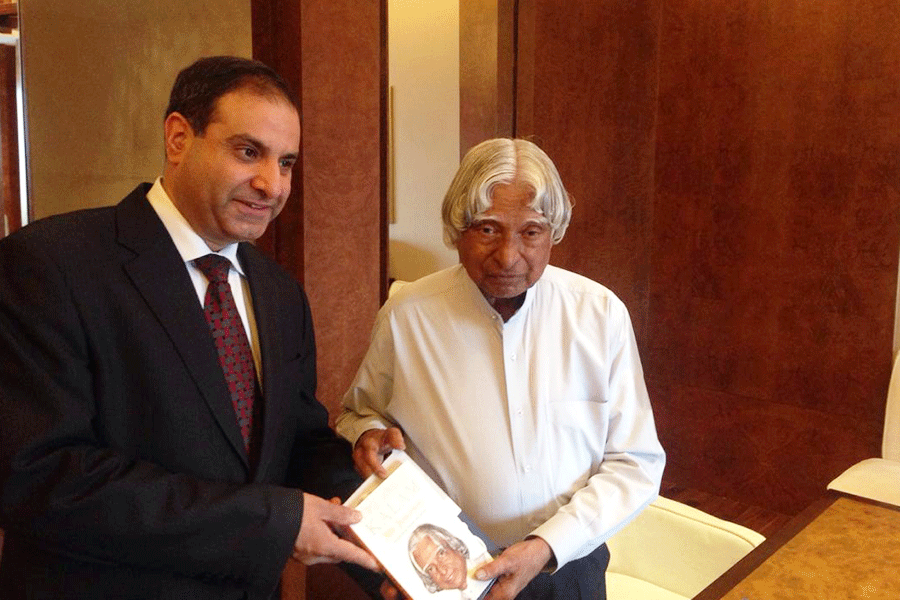
Former President APJ Abdul Kalam with Mehernosh Pastakia
‘China had just opened its doors’
Pastakia started out as the manager of an Indian restaurant in Beijing. Not long after, he fell in love with Zheng Xiaowen, an accountant who was just starting to pick up English, and life took a wondrous turn.
“I got married in 1997 and then I left my job a year later, and then that year we started our first restaurant, the Taj Pavilion, in Beijing. We opened it at the best location in Beijing at that time, the China World Trade Centre,” Pastakia tells The Telegraph Online.
“There were very few foreigners here at that time. China had just opened its doors to outsiders. The concept of foreign food was not much. Our main clientele was Chinese, of course, and then expats living in China.”
Twenty-seven years on, Pastakia has consolidated three very successful restaurants into one single restaurant. He is also the go-to person when Indian dignitaries arrive in China.
“In my team of workers, we also have a very versatile chef from Calcutta — he does most of the food and of course the team helps him,” he says.
“A restaurant is a home away from home. So, Maharashtrians are going to hold a Ganesh Chaturthi event at our restaurant. Then the Malayali community is going to have their Onam celebration. And then we have Durga Puja celebrations for Bengalis.”
A one-stop shop for all Indians in Beijing. But not just Indians, as Pastakia points out.
The current Taj Pavilion is in one of the oldest hotels in Beijing, Lido.
'Kosha mangsho like Calcutta'
In a totally different part of the city, Rabiul, a 32-year-old Bengali culinary maestro, is the proud owner of four restaurants. He is the new kid on the block, his energy is infectious, and he speaks at the speed of light.
“My first restaurant, which I opened in 2021, is called ‘Dastaan—Indian cuisine’. It’s my dream come true,” he tells The Telegraph Online. “After two-and-a-half years, I came up with Bollywood Tales, Mumbai Impression and Rabiul’s Kitchen, all in the Chaoyang district of Beijing.”
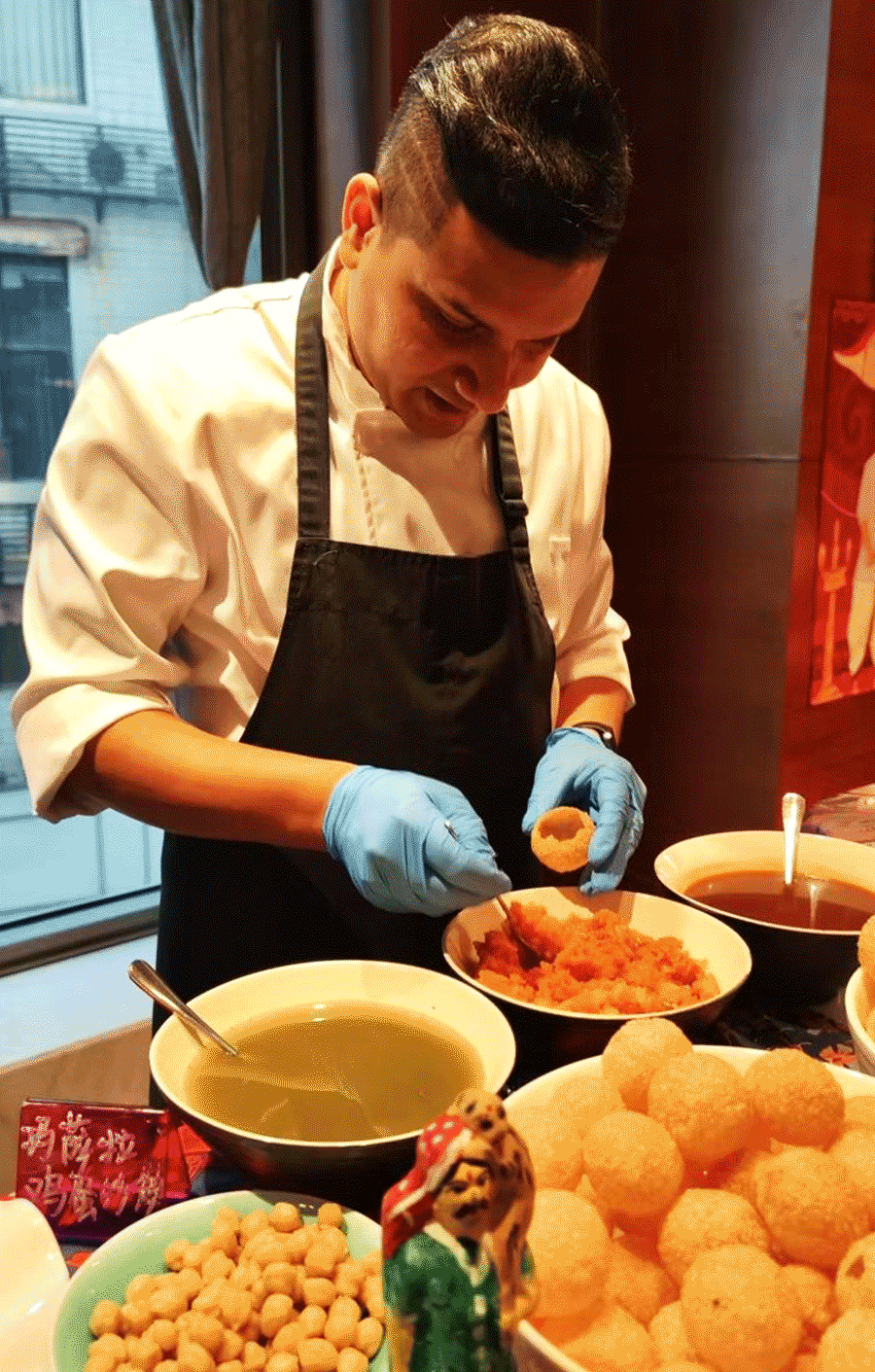
Rabiul Baksh
This remarkable achievement is not just a testament to his talent and hard work — he possibly sleeps even less than the prime minister claims to — but also a reflection of his family’s legacy as culinary ambassadors of Bengal and India.
The journey began 64 years ago, when Rabiul’s grandfather Karim Baksh began cooking for village functions. From these humble beginnings in their village in East Midnapore, the flame was further ignited by Rabiul’s father, Ajimul Baksh, who relocated to Tokyo as a chef in 2007. There’s been no looking back since for the family. An uncle has been running a restaurant in Tokyo for the past 25 years.
“Growing up in an environment filled with the aroma of food, I was destined to be a chef,” Rabiul says. “I love what I do and absolutely adore Beijing. As a proud Bengali, I ensure that you get kosha mangsho just the way you’d want it for a Sunday lunch in Calcutta. It’s not just the Indians; people in China love it too. So do the Europeans. They also pronounce it perfectly.”
Beijingers have taken to the food in a big way, and for long now. After spending six years working in the hospitality industry in various parts of India, Rabiul arrived in Beijing in 2015. Then came life-changing stints in the kitchens of Wyndham Grand Plaza Royal Kaidi and Hyatt Regency Beijing Wangjing, and within three years, he had opened his first outlet. “I haven't looked back after that.”
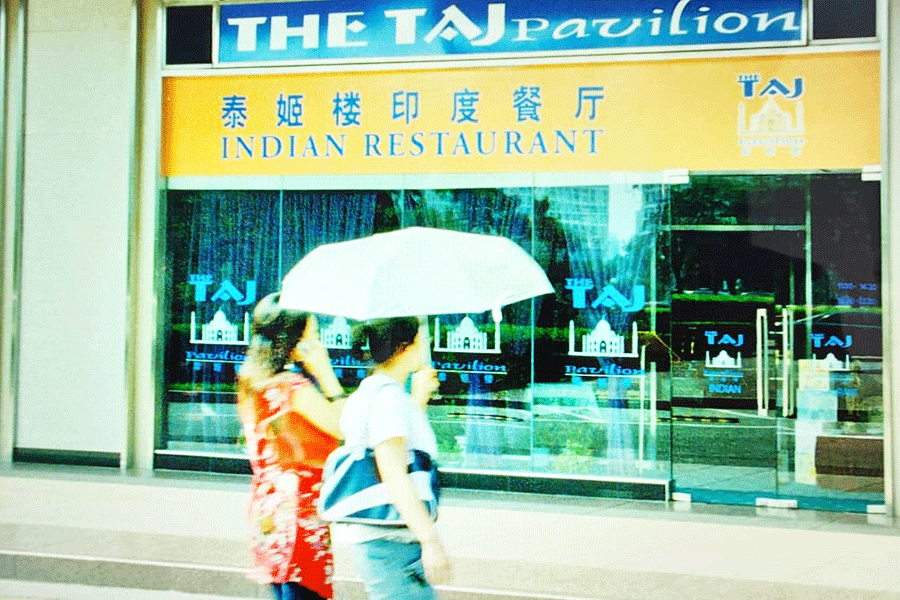
Taj Pavilion in Beijing.
“During Durga Puja and Poila Boishakh, we celebrate with full Bengali meals,” Rabiul, as proud of his roots in Bengal as one can be, says.
Restaurateurs and ambassadors
Pastakia and Rabiul are both busy with their lives and careers and have been warmly accepted by the locals in China. Even though no one mentions a word, the strain in relations between two countries is perhaps not lost on them nor is the opportunity for improved Sino-Indian relations on the 75th anniversary of diplomatic ties.
“I might not have the time to watch news all the time, I make sure I listen to a podcast,” Rabiul says. “Here, I am an Indian, a migrant, speaking Bengali in Beijing and proud of it. All migrant workers, at home or abroad, should have the freedom and dignity I have.”
Does he speak Mandarin? “Of course, I have been learning for ten years now,” he says. “And my favorite Chinese dish is '酸辣土豆丝' (suānlà tǔdòusī, or spicy and sour shredded potatoes),” he texts.
For Pastakia, Mandarin comes easily now. He slips into the language as he gives instructions to his driver while we speak over the phone. “It’s very, very natural to walk up to our guests and talk to them in Chinese.”
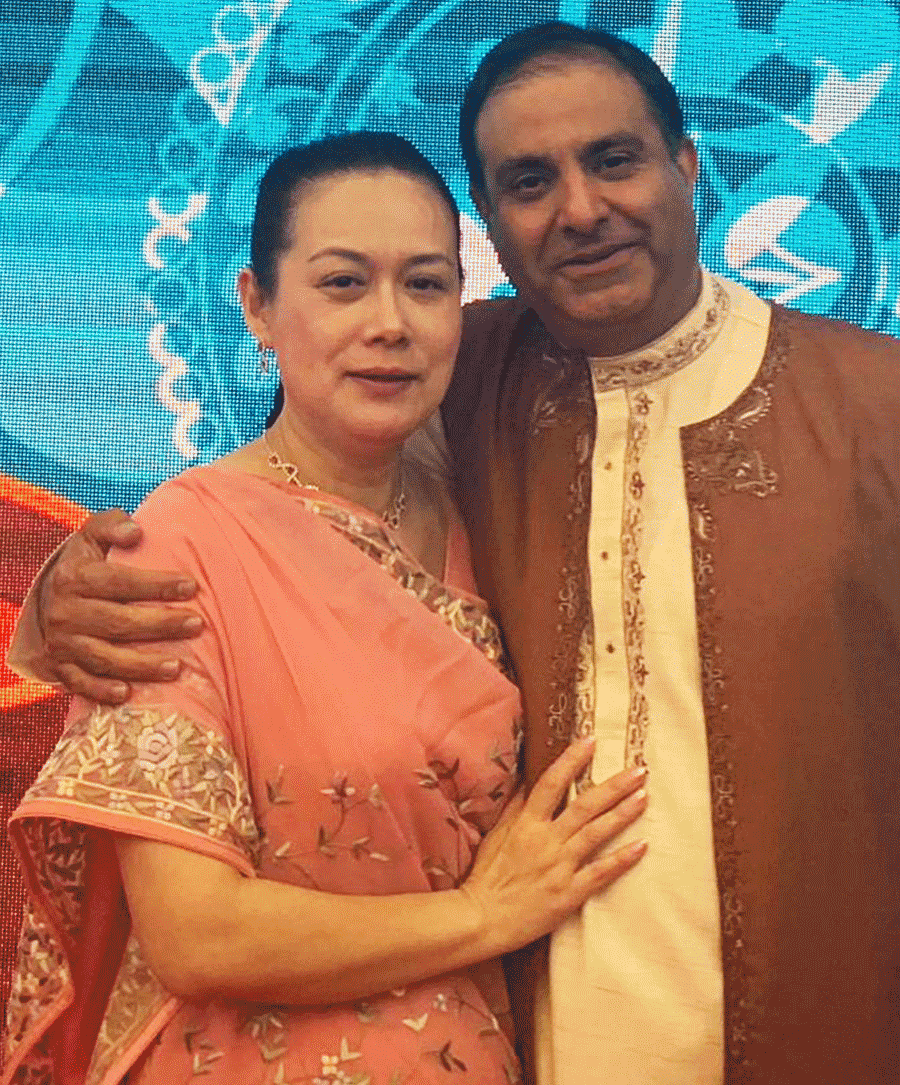
Mehernosh Pastakia with family.
Sixty-nine years ago, in July 1956, a young diplomat in what was then Peking wrote in his diary (later published as a book) while staying at the Hsin Chiao Hotel meant only for foreigners. “The menu was in Chinese,” he had written. “The waiters did not know English. My Chinese was confined to only thank you, ‘hseai hseai ni’ and sorry, ‘tuai pu chi’.”
The man was Natwar Singh, who would later as Union minister of state for external affairs accompany Prime Minister Rajiv Gandhi for a historic visit to China in December 1988.
That world changed long back — Hsin Chiao, with its Soviet architecture, is now Novotel Beijing Xinqiao — but in the Beijing of 2025, we have Rabiul and Pastakia bridging gaps with flavours and aromas that mix perfectly with the local flavours and aromas.

